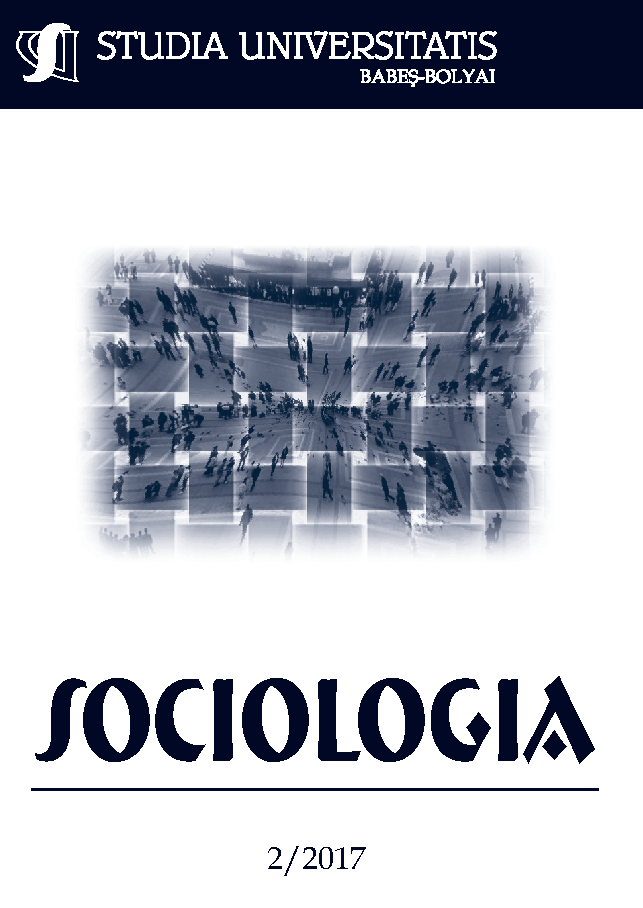BOOK REVIEW: „Apostolatul antisocial. Teologie și neoliberalism în România postcomunistă” (‟The Anti-social Apostolate. Theology and Neoliberalism in Post-communist Romania”) by Alexandru Racu, Tact Publishing House, 2017, 275 pages
Abstract
Alexandru Racu’s book ‘The Anti-social Apostolate. Theology and Neoliberalism in Post-communist Romania” represents one of the few successful attempts in contemporary Romanian social sciences that analyses the post-communist political developments within Eastern Christianity and its relationship to the capitalist transformations and radical neo-liberal reforms that took place during the last decade at the periphery of European Union. The book focuses on the writings of some of the most prominent Orthodox intellectuals and theologians from Romania and carefully scrutinizes the religious and cultural legitimations of capitalism which they produced after the fall of communism. The study also details the ways in which these new religious arguments and narratives depart from previous Orthodox tradition and practice. Drawing on the work of Cornel Ban (2014, 2016), who masterfully analysed the neo-liberal specificities of economic reforms and brutal shock therapies implemented in Romania, and more generally on Tawney (1938) Karl Pollany (2013) and Peck (2010), the book discuses the emergence of cultural and religious forms of neo-liberalism that accompanied, and gave extensive credit to, the implementation of one of the most radical neo-liberal projects in Central and Eastern Europe.References
Ban, Cornel (2014). Dependenţă şi dezvoltare: economia politică a capitalismului românesc [Dependence and development: the political economy of Romanian capitalism]. Cluj-Napoca: Tact.
Ban, Cornel. (2016) Ruling Ideas: How Global Neoliberalism Goes Local. Oxford University Press.
Barbu, D. (2001). Bizanţ contra Bizanţ. București: Nemira.
Barbu, D. (2000). "Etica ortodoxă și ‘spiritul’ românesc" în Firea românilor. București: Nemira.
Bohle, Dorothee and Béla Greskovits (2012). Capitalist diversity on Europe's periphery. Cornell University Press.
Byrnes, T. A. and P. J. Katzenstein (2006). Religion in an expanding Europe. Cambridge, UK ; New York: Cambridge University Press.
Culianu, Ioan Petru (1995). Mircea Eliade. București: Nemira.
Gillet, O. (2001). Religie si nationalism. Ideologia Bisericii Ortodoxe Romane sub regimul comunist. București: Compania.
Gog, S. (2016). Alternative Forms of Spirituality and the Socialization of a Self-Enhancing Subjectivity: Features of the Post-Secular Religious Space in Contemporary Romania. Studia Universitatis Babes-Bolyai Sociologia, 61(2): 97-124.
Leustean, L. (2008). Orthodoxy and the Cold War: Religion and Political Power in Romania, 1947-65. Springer.
Lovinescu, Eugen (1925). Istoria civilizației române moderne. București: Ancora.
Peck, Jeremy. (2010). Constructions of neoliberal reason. Oxford University Press.
Perica Vjekoslav (2006). "The politics of ambivalence: Europeanization and the Serbian Orthodox Church" in T. A. Byrnes and P. J. Katzenstein [Eds.]. Religion in an expanding Europe. Cambridge, UK ; New York: Cambridge University Press: 176-203.
Philpott, D., and Timothy Samuel, Shah (2006). "Faith, freedom, and federation: the role of religious ideas and institutions in European political convergence" in T. A. Byrnes and P. J. Katzenstein [Eds.]. Religion in an expanding Europe. Cambridge, UK; New York: Cambridge University Press: 34-64.
Pollany, Karl (2013). Marea Transformare. Originile politice și economice ale epocii noastre. Cluj-Napoca: Tact.
Racu, Alexandru (2017) Apostolatul antisocial. Teologie și neoliberalism în România postcomunistă [The Anti-social Apostolate. Theology and Neoliberalism in Post-communist Romania]. Cluj-Napoca: Tact.
Ramet, S. (2006). "The way we were – and should be again? European Orthodox Churches and the 'idyllic past'’’ in T. A. Byrnes and P. J. Katzenstein [Eds.]. Religion in an expanding Europe.Cambridge, UK ; New York: Cambridge University Press: 148-175.
Spohn, W. (2009). Europeanization, Religion and Collective Identities in an Enlarged Europe - A multiple modernities perspective. European Journal of Social Theory 12(3): 358–374.
Stoiciu, V. (2012). Austerity and Structural Reforms in Romania. Severe Measures, Questionable Economic Results and Negative Social Consequences. FES International Policy Analysis. http://library.fes.de/pdf-files/id-moe/09310.pdf (Accessed: 20.12.2017).
Tawney, R. H. (1938). Religion and the Rise of Capitalism. Harmondsworth: Penguin Books.
Trif, A. (2016). Surviving frontal assault on collective bargaining institutions in Romania: The case of manufacturing companies. European Journal of Industrial Relations, 22(3): 221-234.
Downloads
Published
How to Cite
Issue
Section
License
Copyright (c) 2017 Studia Universitatis Babeș-Bolyai Sociologia

This work is licensed under a Creative Commons Attribution-NonCommercial-NoDerivatives 4.0 International License.






